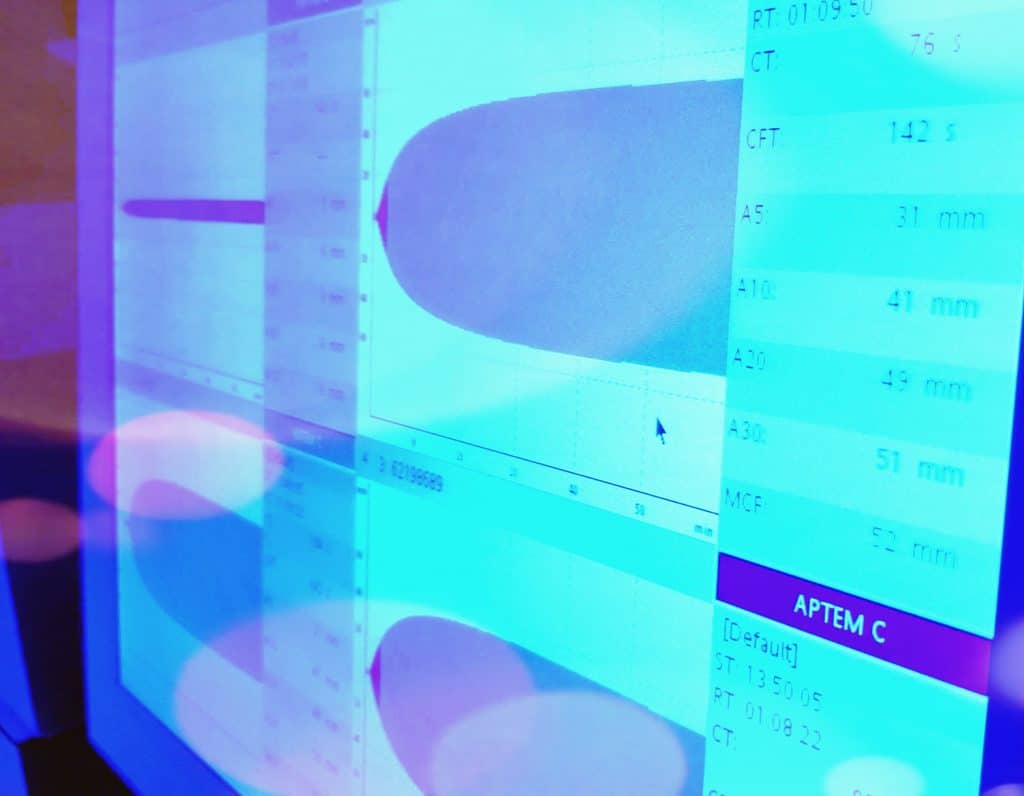Interaction of Heparin and Protamine in Presence of Overdosage: In Vitro Study

Background
Heparin is used for anticoagulation during cardiopulmonary bypass. After weaning from bypass, protamine is administered to neutralize the effects of heparin and thus reestablish hemostasis. Rotational thrombelastometry has been shown to discriminate between heparin and other impairing effects on coagulation. We analyzed the interaction of heparin and protamine under different conditions of overdosage in an in-vitro trial.
Methods
Blood samples were taken from 17 healthy volunteers, separated, and spiked in vitro with heparin, protamine for heparin neutralization, an overdosage of protamine, and two dosages of re-heparinization to evaluate heparin effects under the condition of protamine overdosage. All samples were analyzed in a standard ROTEM rotational thromboelastometry device after intrinsic activation with and without addition of heparinase. Coagulation time, maximum clot firmness, and clot formation time were recorded.
Results
Heparin led to prolongation of coagulation and clot formation times in the test without heparinase. Adequate protamine addition normalized the test, and overdosage of protamine led to significant prolongation of both times. Addition of heparin in the presence of protamine overdosage normalized these parameters.
Conclusion
We reconfirmed that the ROTEM device enables discrimination of the effects heparin and protamine on coagulation and detection of the coagulation-impairing effects of protamine overdosage. Furthermore, we were able to show a positive effect on coagulation times by heparin in the presence of protamine overdosage. Because this was an in-vitro study, these findings need to be confirmed in vivo, requiring further research.
